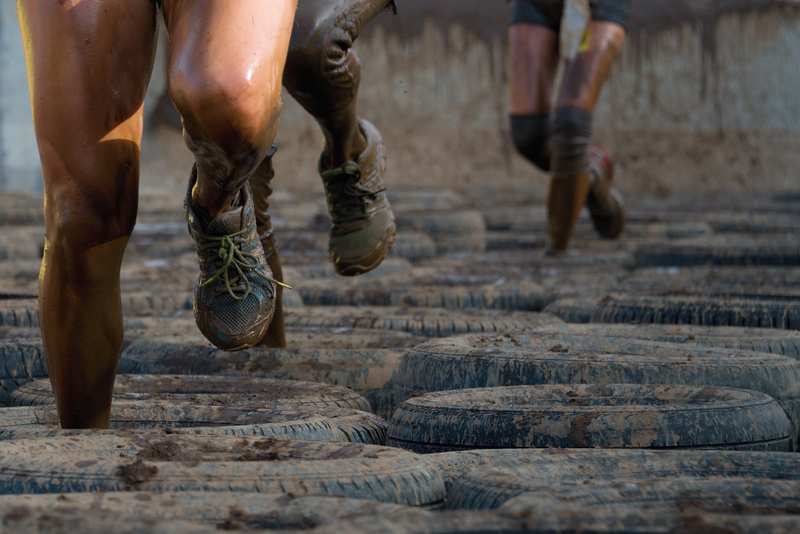Essential Guide to Waste Composting
Posted on 16/04/2025
Essential Guide to Waste Composting
Waste composting is a sustainable and environmentally friendly method of converting organic waste into nutrient-rich soil amendments. This process not only minimizes the volume of waste destined for landfills but also significantly reduces the emission of greenhouse gases. In this comprehensive guide, we explore the ins and outs of waste composting, offering tips, discussing the pros and cons, and providing actionable insights.
What is Waste Composting?
Composting is the biological decomposition of organic material under aerobic (oxygen-rich) conditions. It turns waste such as food scraps, yard clippings, and even certain paper products into valuable compost--a dark, crumbly substance resembling soil that's full of nutrients beneficial for plants.

The Composting Process
The composting process involves several stages:
- Collection: Gather organic waste materials such as fruits, vegetables, coffee grounds, tea bags, leaves, and grass clippings.
- Preparation: Shred or chop larger pieces to speed up decomposition.
- Assembling the Pile: Create a compost pile or fill a compost bin with alternating layers of greens (nitrogen-rich materials) and browns (carbon-rich materials).
- Monitoring: Maintain moisture and aerate the pile by turning it regularly.
- Maturity: The compost is ready when it's dark, crumbly, and has an earthy smell.
Types of Composting
- Backyard Composting: Ideal for households with gardens. It involves using outdoor bins or heaps to decompose waste material.
- Vermicomposting: Uses worms to break down organic waste, producing high-quality compost known as worm castings.
- Commercial Composting: Large-scale operations that process municipal organic waste. They use specialized equipment and methods to handle large volumes efficiently.
Materials Suitable for Composting
Here's a list of items that can and can't be composted:
Compostable
- Fruit and vegetable scraps
- Eggshells
- Coffee grounds and filters
- Tea bags
- Leaves and grass clippings
- Wood chips and sawdust
- Paper and cardboard (non-glossy)
Non-Compostable
- Meat, dairy, and bones
- Oily or greasy foods
- Pet waste
- Diseased plants
- Non-biodegradable materials (plastics, metals)
Tips for Successful Composting
- Balance Greens and Browns: The ideal ratio is roughly 2/3 browns and 1/3 greens.
- Moisture Level: Keep the compost pile as damp as a wrung-out sponge. Add water if it's too dry and dry materials if it's too wet.
- Aeration: Turning the compost pile every few weeks introduces oxygen, which speeds up decomposition.
- Location: Position your compost pile or bin in a well-drained area with partial sun exposure.
- Patience: Composting can take anywhere from a few months to a year. Patience is key.
Pros and Cons of Composting
Pros
- Reduces landfill waste
- Enriches soil with essential nutrients
- Lowers greenhouse gas emissions
- Encourages beneficial microbial activity in soil
- Can be educational and fulfilling
Cons
- Requires time and effort to manage
- Can attract pests if not properly maintained
- Smells might develop if not balanced correctly
- Needs space, not suitable for all living situations

Takeaways
Waste composting is an effective and environmentally friendly way to manage organic waste. It involves a few key steps--collecting, preparing, piling, and maintaining the waste material. Various composting methods, such as backyard composting and vermicomposting, are available to suit different needs. Effective composting requires balancing the greens and browns, maintaining moisture levels, and ensuring proper aeration. While composting has numerous benefits, such as reducing landfill waste and enriching soil, it also requires a certain level of commitment and physical space.
Conclusion
Composting is a worthwhile endeavor for anyone looking to reduce their environmental footprint and produce high-quality soil amendments for gardening or landscaping. By understanding the basics and following best practices, you can turn organic waste into a valuable resource. Whether you're a beginner or an experienced composter, this essential guide provides the foundational knowledge you'll need to compost successfully.










